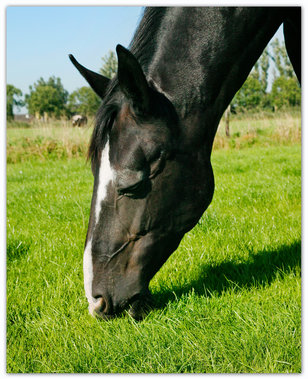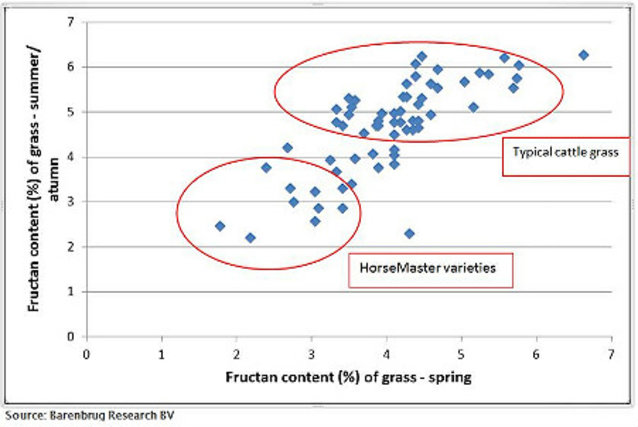Low fructan content
|
A low fructan concentration in grass reduces the risk of laminitis. Fructan is a carbohydrate (a type of sugar) that is produced by grass plants under the influence of sunlight. Grass plants produce particularly large amounts of fructan when nights are cold and sunlight is intense. |
|
 |
Fructan is currently regarded as one of the main causes of laminitis. It is only partly digested in the small intestine, resulting in high sugar levels in the hind gut that disturb the bacterial balance in the intestines. This leads to the formation of toxic substances that may cause laminitis.
Low fructan content Barenbrug has undertaken a lot of research into the fructan (sugar) contents of different grasses. Some grass species are known for their low fructan contents, but even within a species, some varieties contain more fructan than others. The varieties in Horse Master contain an impressive 50% less fructan than varieties of grass intended for cattle and sheep. |
|
Barenbrug analyses the fructan contents of more than 70 grass varieties a year. The following graph shows you the great differences in the fructan contents of different varieties. The varieties in our equestrian mixtures contain on average less than half of the fructan that is to be found in cattle grass varieties. |
|
 |
|
|
Good grassland management
Fructan contents of hay and grass silage |
|

